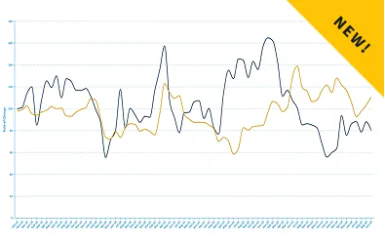The Entire RV Industry Is Taking Steps To Ensure Its Success For Years To Come
Most people have experienced large disruptions to their lives during the pandemic. One silver lining is that some people were able to discover new enjoyable activities. Some people turned to RVing, either buying or renting an RV during 2020. Building on this surge in the popularity of motorhomes and campers, the industry is working to continue its success for years to come.
2020 was a historic year for the RV industry
By September 2020, the RV Industry Association was projecting that shipments would pass 400,000 wholesale units in 2020 and more than 500,000 units in 2021. That would be an estimated 4.5 percent increase from 2019 to 2020, despite shutdowns during the pandemic, and a projected 19.5 percent increase from 2020 to 2021.
“The RV industry has experienced strong consumer growth over the past 10 years, but the recent soar in consumer interest in RVing driven by the COVID-19 pandemic has led to a marked increase in RV shipments to meet the incredibly strong order activity at the retail level,” RV Industry Association President Craig Kirby said. “This new forecast confirms what we have been seeing across the country as people turn to RVs as a way to have the freedom to travel and experience an active outdoor lifestyle while also controlling their environment.”
What’s to come in 2021
The Democrats now control both the House and the Senate, and the RV industry plans to work to ensure that policy is favorable for RV sales. The Senate is now 50 Democrats and 50 Republicans with Vice President Kamala Harris casting the tie-breaking vote. This composition might make it a little easier for President Joe Biden, also a Democrat, to get his agenda passed.
The economy will be one of several huge issues for President Biden and Congress to focus on. To help fund infrastructure initiatives and an increase in the federal minimum wage, the Biden team may suggest amending the 2017 Tax Cuts and Jobs Act (TCJA) to increase corporate tax rates, according to the RV Industry Association. A current drafting error in the TCJA prevents “towable RV dealers from deducting their full floor plan interest from their taxes.” The RV Industry Association plans to “push for 100 percent exemption for interest paid on all RV dealer inventory.”
In a renewed focus on climate change, the U.S. will rejoin the Paris Agreement and likely return to earlier EPA regulations. Those regulations may include the Obama-era Corporate Average Fuel Economy (CAFE) standards for motor vehicles. New initiatives for clean, renewable energy are likely as well. The industry feels well-positioned to be successful with the new Congress and new presidential administration.
Why people love RVs
RVing is part of experiences that nearly everyone can get behind. It provides a way for people to enjoy the outdoors more easily and frequently and brings some adventure to travel. According to DailyCaller.com, RVing can be an affordable way to travel. It’s also a flexible way to travel (or live full time) and has the added bonus of being socially distanced.
The industry is part of the Outdoor Recreation Roundtable (ORR), which has helped bring the bipartisan issues of outdoor recreation policies to the attention of Congress members. The RV Industry Association advocated for the passage of the Great American Outdoors Act in 2020. This act draws revenues from energy development over several years to pay for maintenance and infrastructure for “national parks, forests, wildlife refuges, recreation areas, and American Indian schools,” according to the National Park Service.
After a historic year, the recreational vehicle industry is hoping to continue its current momentum and continue growing its popularity with the American public. It plans to work with the new administration and new Congress to ensure its success into the future.
Check out the full article from MotorBiscuit here.
Please Sign in to View
Log in to view member-only content.
If you believe you are receiving this message in error contact us at memberservices@rvia.org.

